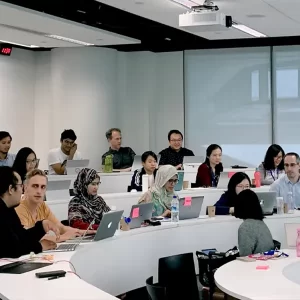Congratulations on taking the first step on a pathway to a career in medicine.
Meet new people
Mingle with the other first-year students and attempt to meet the people in your course.
These individuals are going to be in your tutorials, lectures, In Case Learning sessions (ICLs) and on your placements. They will soon be your life-long friends and a wonderful support system; forging connections early on will make you feel more at home in this new phase.
Ensure you take advantage if second-year students generously offer their resources and knowledge. Medical students are a supportive group who enjoy their memes as well as their jocular acronyms.
Get involved in campus life
During O-Week, you will see a plethora of societies, organisations, and events vying for your attention.
At first, the array of activities dazzled me and I held a rather reserved attitude towards signing up. My rationale was that I did not know how rigorous the course was going to be, so I did not want to overcommit and find myself cursing my extracurriculars in the stressful days before exams.
However, during the second semester of first year, I signed up for more groups and became involved with campus life. I saw how rich my university experience was compared to my first semester. Join in the activities that capture your interest.
Even though semester two was more academically challenging (courtesy of anatomy), I was more organised and engaged than in semester one. Of course, don’t overcommit yourself to social activities; be sure to leave enough time to do your assignments and study.
Study tips for first years
Being at medical school is more than just about lectures, deadlines and exams, explains Akshaya Ajit and Bridget Joseph Xavier.
A handy textbook guide
Check out this concise reviews and recommendations of our favourite textbooks and resources.
Get organised in your study early
No two people study alike, so it is up to you to discover how you learn best.
For me, I find it helpful to attend lectures in-person, as I remember content better than listening to a recording.
I keep a physical folder for each semester (of both handwritten and typed notes) as well as having the lecturer notes annotated on my tablet. When it comes exam time you can feel secure in having all the material you need, and you will know where it is.
My most successful study technique is to explain concepts to myself using a whiteboard and markers. Doing staggered past papers and practice questions can also give you more confidence. Do not leave your study to the last minute.
Take care of yourself
During medical school get a good GP, surround yourself with supportive like-minded peers, ensure your professional wardrobe is up to scratch for your Clinical Skills Sessional Encounters (CSSEs), and have a lot of fun along the way.
In no time at all, you will be spouting clauses on confidentiality and demonstrating dorsiflexion like you were born a medical student.
How to look after your mental health during medical school
Harry Yong offers a few personal tips on how he looked after his mental health during med school.
Moving interstate to study
Mahta Mohajeri notes some simple measures which you can implement to make the transition interstate easy.
Advice for international students
Check out a few pointers from Christina Hyunjin Kim, to help international students cope with the challenges of living away from home and country.
By Natalie Evans
Natalie was a Monash University Medical Student where she represented GPSN in her second year of study.







